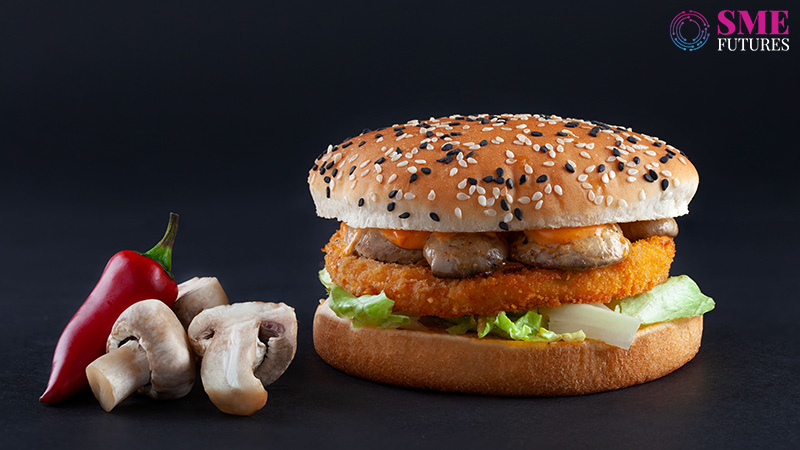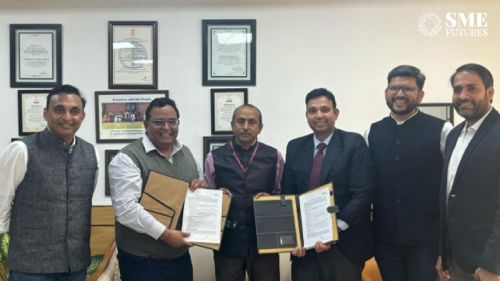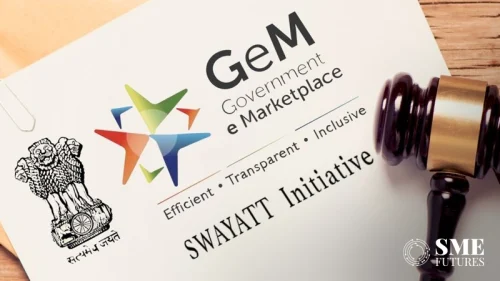‘I’m lovin’ it’—this super catchy slogan will automatically trigger a memory in your head of a yummy and juicy burger from a very popular American brand. But how many of us are as familiar with an Indian burger brand?
Answering this question can be difficult unless you know your patties.
Burgers have become a favourite meal for Indians ever since they have entered the Indian market from the West. Furthermore, this ‘more of a meal’ snack has been altered sufficiently to accommodate our Indian taste buds. And this innovative streak of modifying the flavours of the burgers according to our tastes has remained constant for the past few years.
However, a Bengaluru based home-grown burger brand, Biggies Burger wants to change the burger narrative altogether. Started in the year 2011, this QSR concept chain is giving a twist to burger making with its grilled burgers. In just a decade, they have expanded their footprint to southern and eastern India by successfully selling their grilled and specialty burgers.
“A burger isn’t just a burger. It is a statement of development,” says Biraja Prasad Rout, a foodie and the founder of Biggies Burger. Rout aims to disrupt the monopoly of the foreign burger chains in the Indian QSR market.
Burgers are love
Why only burgers, we ask? Rout answers by saying that there is so much more to burgers then we give them credit for.
“To have a true sense of what being modern and globalised means, we should consider the burger as it is a cohesive representation of this idea. Typically, a place that has a burger chain is considered to have global exposure. Secondly, a burger is a single product meal. Thirdly, burgers are a global product,” Rout tells us, explaining why he chose the burger as his product for entrepreneurship.
But there’s more to the story. It’s love.
While working for Infosys, Rout’s first encounter with burgers was at Koramangala, Bengaluru. Since then, this techie used to commute between 15 to 18 kilometres every time he had a craving for burgers.
Eventually after eating many burgers, the realization struck him that though these fried patties were tasty, they were also specious and lacked authenticity. So, Rout decided to do something about it.
Burger kiosk to Biggies Burger
“At that point in time there were no Indian brands that sold burgers in the market. Every time I had to eat a burger, I had to visit the store of a foreign brand. Keeping that in mind I thought, why can’t an Indian brand succeed in the burger space?”
Rout took a gamble and while still working at his corporate job, he set up a kiosk to introduce people to his own version of the burger patty with his grilled burgers.
“Our initial investment was Rs 1.72 lakhs,” he says.
“Initially Biggies Burger was a kiosk firm. It was a 25 sq. ft stall where only one staff member could fit inside and the menu had only four items,” he adds.
People loved what Rout was doing, which led him to set up his first store in 2013. And that’s how the Biggies Burger brand saw the light of day.
“There are two purposes behind starting Biggies Burger. The first thing was that there was a lot of negative branding happening to the burger by calling it a junk product. Biggies Burger was the first to offer a baked burger which was prepared with zero oil. Our second purpose was to create an Indian global chain so that when people think of foreign burger chains, they would think of Biggies Burger as well,” he explains.
Gradually his product started to get noticed in the Silicon City of India and demand peaked. In 2014, the brand started expanding with its first franchise. In addition, two partners (Sandeep Satpathy and Abilash Bellur) joined Rout in his foodpreneurship, which gave this business more structure.
However, there were plenty of challenges that Rout had to go through to establish his QSR chains.
‘Grilled’ with challenges
Biggies Burger has evolved from a 25 sq. ft to a 30,000 sq. ft carpet area. With its 67 stores, Biggies Burger today has its presence in 23 cities across the nation.
“Biggies burger was a proprietorship firm, and I was running the brand alone. After Sandeep and Abilash joined, we registered as a private limited company,” Rout tells us.
When Biggies Burger started franchising, the company thought of adding dining and increasing the space. But there were challenges.
Rout says, “One of the biggest challenges was funding as we were bootstrapped. Having had no prior exposure to business was the second challenge. Neither was I from a tier 1 university of India where there are supporting facilities. We had to grow with hard learning.”
Furthermore, from the day they started until 2016, Biggies Burger did not see any profit. “I have not seen profits even once as I used to reinvest the money that I earned from the business to create more scope for my work,” he tells us.
From procuring ingredients to handling scammers, Rout has dealt with his fair share of challenges while setting up his brand.
Rout recalls, “Ensuring the right materials for cooking the burgers gave me a hard time during the initial days. The unavailability of ingredients such as lettuce near my kiosk, had brought in situations where I actually had to travel from Electronic City to JP Nagar to source it. Not having a proper vehicle, I have had situations where several times I was stuck with my bike running out of fuel. Without any prior experience of running a business, I was cheated a lot. While trying to focus on building the brand, I couldn’t focus on the cash counter, and I ended up getting cheated. These are just a few of the challenges that I had to contend with.”
These are ‘IoT’ burgers
IoT is not the future anymore, it’s the present.
And it’s not just in the IT labs anymore, it’s also changing the way we eat. And to better their burger making, Biggies Burger have also incorporated IoT into their kitchens.
“A machine can do no wrong unless it is fed wrong. That way IoT has helped us in managing quality, scalability, sustainability and consistency across the chain,” says the founder.
At Biggies Burger, some of the kitchens are incorporated with automated fryers and e-pans for making fries, burger patties and wraps. They upload recipes to the cloud to get their kitchens ready to deliver burgers that taste the same across the entire network of their stores. This way, IOT assists in reducing manpower, improving time utilisation, and ensuring consistency in the taste of the food being prepared across the chains. Rout lists out the advantages for us.
“Often consumers choose dishes according to their preparation times. It basically tells us how fast a restaurant can deliver the food. With IoT, we were able to reduce our kitchen preparation time (KPT), which is a factor that plays a major role in shaping consumer’s choice making. Earlier our KPT was 20 to 22 minutes which has now been reduced to 8 to 9 minutes. We have in fact achieved 4 to 5 minutes compared to the industry KPT. This way our customer acquisition and sales have increased by at least 25 to 30 per cent,” he elaborates.
Meeting with the partners
It’s rare for any business that its customers become an integral part of it. But it happened with Biggies Burger.
“Both my co-founders were my customers, then they became franchisees and later joined me in my business,” Rout tells us.
Sandeep Satpathy looks after the expansion part, while Abilash Bellur has taken over the operational part of the business.
“Sandeep was the second franchisee of Biggies Burger in Raipur in 2014. Abilash took a franchise for Electronic City, Bangalore in the year 2015. Both were the initial franchisees and had a lot of conviction towards the product. They also approached me expressing their interest in joining me as full-time partners and were considering quitting their current jobs. I quit my job as well and all three of us started off as partners,” Rout tells us.

Entering QSR franchising
Navigating through the franchising space for Biggies Burger is also an experience that Rout never thought of initially. In fact, it was his customer’s constant enquiries that prompted him to jump on this wagon.
“Once my employee was sick, and I was preparing burgers at the kiosk in his place. One of the regular customers asked me about the franchising opportunities, assuming that I was one of the employees. I thought that if our customers are approaching us for a franchising opportunity, it’s a good thing. That is when the idea of franchising struck my mind,” Rout reminisces.
But he wanted to do it differently. According to him, the Indian companies are franchising just
for the sake of money. “And justify it as franchising…In mature markets like the USA or Europe, they respect and understand what real franchising means,” says Rout.
Franchising is not selling the logo
“Franchising is not just selling the logo, it is all about constantly replicating the brand,” he comments.
To not follow the path of every other franchise, Biggies Burger conceptualised its franchising business in a rather offbeat manner. Rout tells us that his franchisees are from varied backgrounds, comprising of government officials, army personnel, IT professionals etc.
“We intend to understand our franchisee’s sentiments to the best of our capabilities. The most common thing for a franchisee is that they need to have the right kind of investment and the right amount of time to focus on their business. We don’t expect all our franchisees to know how to make a burger. It is our job. We create modules and educate our franchisees through SOPs, scope of work and technology on what they must do to make it more sustainable,” Rout elaborates.
And the plan is to create a coaching platform and an ecosystem of 1000+ franchisees that will be educated, nurtured and upgraded by them.
“We are thinking of starting a franchisee coaching platform for our franchisees. Of the 100 per cent of the work that needs to be done, we would do 90 per cent of the job and expect the franchisee to do only the remaining 10 per cent of the job,” he says.
Aiming to create more foodpreneurs instead of just franchise owners, Rout asserts that they have optimized their investments to make beneficial and lean transactions.
“We want young minds who want to do the business rather than the ones who are already doing other businesses. We want to create more foodpreneurs. We are charging a minimum franchising fee compared to our American counterparts,” Rout informs us.
QSR and competition
It’s a fact that the Indian palate is changing in accordance with the global palate.
Earlier, the Indian demography was limited to mostly local cuisine. However, the advent of the QSR chains and the organised food businesses has drastically changed the way we eat nowadays.
Also, social media and the virtual world have spawned a widespread awareness about global cuisine. For instance, people today are able to differentiate between the minutiae of Thai, Chinese and Malaysian cuisines, when not too far back, they were all generically labelled as ‘Chinese food’.
Talking about the QSR landscape in India, Rout opines that QSR in India is a mix of the organised and the unorganised. But India majorly has the unorganised food businesses. The organised sector is growing at a 38 per cent CAGR. We foresee the whole Indian F&B industry or at least 70 per cent of it being controlled by the organised players by 2030. Many have already started exploring the opportunities in the global market and are seeing great success. As a market, India is growing big time with a 38 per cent CAGR in the QSR industry, he says.
“When it comes to the Indian QSR brands, they have been giving tough competition to the foreign brands for the last five-seven years. Except for a couple of foreign brands, no other foreign brands have been able to succeed in the Indian market,” he adds.
Rout says that due to the acquisition of more knowledge and global exposure, the food preferences of people have also changed. It’s a good sign that the Indian palate has become more attuned to and accepting of global cuisines. “According to me, the future is bright for the Indian QSR brands, and they will take on the whole globe. After the American QSR chains, the Indian QSR chains will be the next global chains,” Rout asserts.
Biggies Burger has plenty of plans to do the same. Currently, it sells 1.8 lakh to 2 lakh burgers, but the plan is to skyrocket this number to up to 10 lakh burgers by the end of the year. “We want to see a 5x growth in our sales. Our short-term plan is to open 306 burger stores by 2024. While for the long term, we want to make our brand India’s largest food franchise brand with a presence in India and in the neighbouring countries as well,” Rout concludes.











